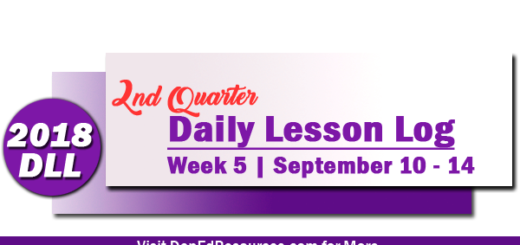DepEd Memo No. 20, s. 2017 | Philippine Cultural Education Program: 2017 Program Components
08 FEB 2017
DepEd Memo No. 20, s. 2017
PHILIPPINE CULTURAL EDUCATION PROGRAM: 2017 PROGRAM COMPONENTS
To: Regional Directors
Schools Division Superintendents
Public Elementary and Secondary Schools Heads
All Others Concerned
- The National Commission for Culture and the Arts (NCCA), in partnership with the Department of Education (DepEd), will be implementing the following programs for the year 2017:
a. Graduate Diploma in Cultural Education (GDCE);
The 24-unit graduate credit program follows a two summer ladderized curriculum designed for public school teachers of any subject area in the elementary and high school levels. Each phase consists of 12 graduate-level academic credits. Level I scholars are expected to continue to Level II.
Successful graduates of program have the option to continue on to the Master of Education, Major in Cultural Education to be offered in higher education institutions (HEIs) selected by NCCA. The list of HEIs is enclosed as Enclosure No. 1 of this Memorandum.
The NCCA shall provide the scholarship grant consisting of full tuition and P 5,000.00 as stipend to subsidize meals, accommodations, and other expenses.
b. Graduate Diploma in Teaching Arts (GDTA);
A two-summer 24-unit post-baccalaureate program divided into Levels I and II which offers foundational and major courses to on the basic theories, processes, and application of the arts, culture, and heritage in the culture-based teaching of the basic education curriculum. The GDTA course allows the application of classroom concepts in professional settings through internships and independent studies at numerous arts organizations in their respective regions. The arts management program maintains academic and professional relationships with many national and regional institutions. Level 1 scholars are expected to continue to Level II.
The NCCA shall provide the scholarship grant consisting of full tuition and P 5,000 stipend to subsidize meals, accommodations, and other expenses.
c. Kaguruang Makabayan Training: National Seminar on Culture- Based Teaching Methodologies, Content, and Approaches;
The seminar aims to disseminate information and orient teachers, administrators, principals, and supervisors on culture-based education across various subject areas. The seminar will also showcase award-winning Lesson Exemplars. This encourages teachers to participate in the yearly Lesson Exemplar Competitions.
d. Bantula: ASEAN Integration Conference – Strengthening Culture-Based Education in a Borderless Economy and Diverse Cultural Community;
The objective of the conference is to discuss among the stakeholders of cultural education – institutional leaders and policymakers, academics, artists, and cultural workers, local government officials, culture bearers and cultural advocates, students, community leaders and organizers – pivotal role of culture-based education as a driver of sustainable development and inclusive growth in the ASEAN region.
Cultural Education as catalyst for regional cooperation facilitates socio-cultural mobility by promoting partnership – respect and understanding – among members of ASEAN Community, whose national lives and cultures are intertwined and interconnected through shared histories and common traditions. A responsive and relevant culture-based education ensures the creation, promotion, and preservation of a peaceable environment conducive to productive collaboration, creative interaction, and meaningful cooperation.
All National Association of Cultural Educators and Scholars (NACES) Officers and members are encouraged to participate.
e. Contextualization Writeshop: Kwentong Supling 2nd Batch;
The writeshop aims to develop K-12 lessons through the localization and contextualization of the Essential Knowledge On Philippine Arts, Culture And Heritage for Basic Education Curriculum (EKPACAHBEC). The participants are expected to: (1) present an enriched culture-based instructional design in contextualizing essential culture knowledge into the K to 12 content standards across the curriculum; (2) conduct a re-telling of Filipino folktales trough a workshop with K to 3 teachers; and (3) produce a manuscript for Kwentong Supling in six languages, namely Cebuano, Kalinga, Ibanag, Maguindanao, Maranao, and Tausug.
f. Diwang: Sagisag Kultura ng Filipino – Tatlong Bibe Children’s Song (K-4), Solo KWIZ (5-10), Lesson Exemplars for Teachers, and Schools Website Development Competition.
The 5th Diwang: Sagisag Kultura Ng Filipinas: Pagkilala, Pagpapahalaga at Pagpapalaganap competition aims to understand, promote, and utilize the Philippine cultural index of knowledge through the following activities: Tatlong Bibe Children’s Song Competition (for kinder to Grade 4 students), Solo KWIZ (for Grades 5 to 10 students), and Schools Website Development Competition.
This also involves the development of Lesson Exemplar for Teachers. The said Lesson Exemplars in Filipino, English, Math, Science, Social Studies, Values Education, Arts/Music, Technology and Livelihood Education, and PE/Health should ensure that the basic education institution are promoting the cultural icons of the Filipinos in their websites.
- It is hereby requested that all DepEd regional directors release a Regional Memorandum per program indicating the dates, venue, and program design in consultation with PCEP and Regional Coordinators. The PCEP Secretariat shall coordinate with the Regional Coordinators the details and requirements per program. The list of Regional Coordinators is contained in Enclosure No. 2.
- All regional coordinators are required to attend the PCEP 2017 Program Orientation and Evaluation. The details of the orientation, including letter requests, will be provided by the PCEP Secretariat through email. The PCEP shall provide for the transportation, board, lodging, and other expenses of all participants.
- For further information and inquiries, all concerned may contact the PCEP Secretariat, Philippine Cultural Education Program, National Commission for Culture and the Arts (PCEP, NCCA) at telephone no. (02) 527-2192 local 529 or email at pcep.secretariat@gmail.com.
LEONOR MAGTOLIS BRIONES
Secretary
Encls. :As stated
References:
DepEd Memorandum: Nos. 14, 15, 47, 168 and 214, s. 2016
To be indicated in the Perpetual Index under the following subjects:
- CULTURAL EDUCATION
- SCHOLARSHIP
- LEARNING AREA, ARTS
- STUDENTS
- OFFICIALS
- TEACHERS
- PUPILS
Click here to download a full copy.
DM No. 20, s. 2017: Philippine Cultural Education Program: 2017 Program Components – (Download)















